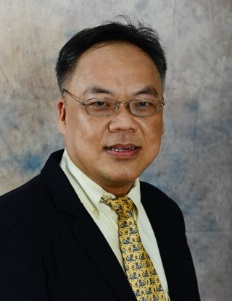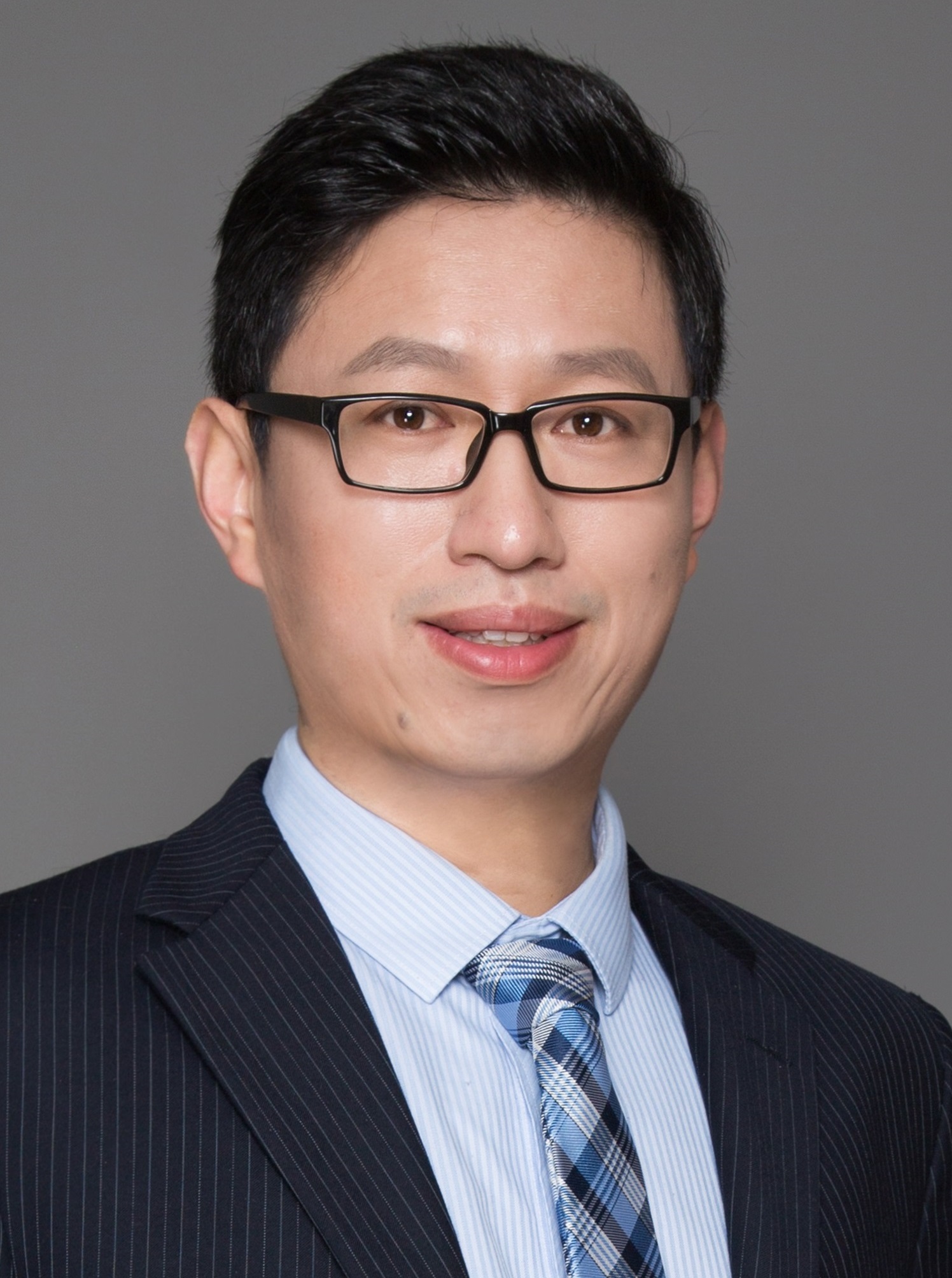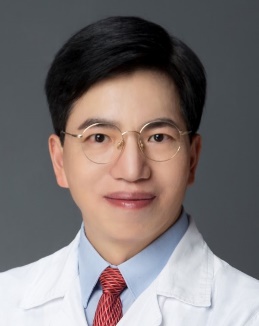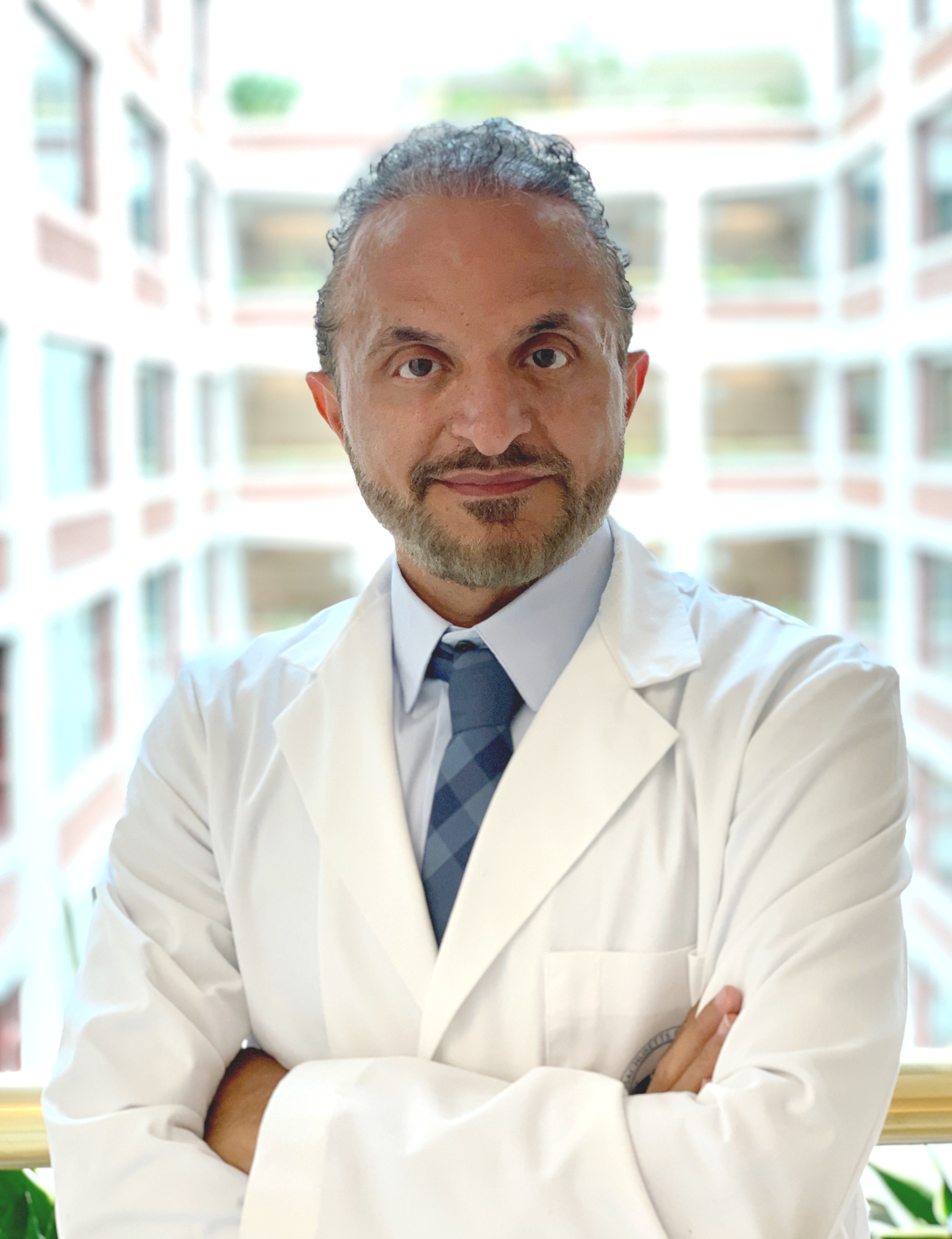Dr. Eddie Y. K. Ng
PhD, PGDTHE, FEUAS [GR], FNAT [USA], AEASA [EU], FASME [USA], FIET [UK], FIETI [HK], DFIDSAI [CN], AAPL [USA], Nanyang Technological University, SingaporeSpeech Title: Study of Advanced AI Techniques for the Detection of Myocardial Infarction ECG Signals in Clinical Settings
Abstract: Coronary artery disease occurs when plaque is accumulated in the walls of the artery. This causes the artery to narrow, reducing blood flow to the heart. Coronary artery disease is globally identified as the most predominant and lethal cardiovascular disease. Furthermore, undiagnosed coronary artery disease may progress and lead to complications such as myocardial infarction and congestive heart failure. Hence there is a compelling need for the prompt and unerring detection of coronary artery disease, myocardial infarction, and congestive heart failure using automated systems. The electrocardiogram (ECG) is the most preferred method of detecting cardiovascular diseases as it is easily available and economical compared to imaging methods. Hence, this talk summarises the development of advanced models using ECG signals for the detection of coronary artery disease, myocardial infarction, and congestive heart failure, focusing on the detection of myocardial infarction. This work contributes to the medical field as it offers some level of explainability of the inner workings of the deep models that clinicians may relate to. The reliability of the developed deep model used in healthcare applications such as emergency diagnosis of different types of myocardial infarction contributes significantly to clinicians. The presentation will include 3 parts:
1) the development of convolutional neural network (CNN) and GaborCNN (with a unique Gabor layer) models for rapidly classifying coronary artery disease, myocardial infarction, congestive heart failure, and healthy ECG signals is discussed. The ECG signals which were acquired from the Physikalisch- Technische Bundesanstalt (PTB) database, were fed to the two models for classification. The GaborCNN was affirmed to be the better model for the classification task due to its high overall accuracy of 98.74% and lower computational demand. We believe this is the first study to integrate the Gabor filter into the CNN model to automatically classify normal, coronary artery disease, myocardial infarction, and congestive heart failure classes using ECG signals.
Despite the surge in the development of robust models for the automated detection of cardiovascular diseases, these are often not trusted by clinicians due to the lack of explainability of models’ mechanisms. Hence,
2) the development of the CNN and DenseNet models with the application of an advanced and unique GRAD-CAM technique to both models’ output will be briefly discussed. ECG beats were extracted from the healthy and ten myocardial infarction classes using the R peak detection algorithm and fed to the developed CNN and DenseNet models. Application of the GRAD-CAM technique enabled visualization of ECG leads and portions of ECG waves that influenced the models’ predictive decisions. DenseNet was identified as a better model due to its low computational complexity and higher classification accuracy of 98.9% due to feature reusability. Lead V4 was the most activated lead in both models. The DenseNet model with the Grad-CAM technique enables clinicians to determine the type of myocardial infarction based on explainability and, thus, has the potential to boost clinicians’ confidence in using it in hospital settings. This is exciting to report features that influenced the classification decisions of deep models for multiclass classification of myocardial infarction and healthy ECGs.
Current diagnostic models for cardiovascular diseases have been primarily developed using public databases and are thus unsuitable for hospital settings, where the uncertainty of models is predominant.
3) a unique Dirichlet DenseNet model was trained with pre-processed myocardial infarction ECG signals and tested with noisy myocardial infarction signals. The predictive entropy was used as an uncertainty measure to determine the misclassification of normal and myocardial infarction signals. The misclassification of signals was determined based on the computation of four uncertainty metrics; uncertainty sensitivity, specificity, accuracy and precision. The proposed method demonstrates that the developed model is reliable as it is able to convey when it is not confident in the diagnostic information its presenting, having the potential to make a significant contribution to clinicians, especially in emergencies such as urgent diagnosis of myocardial infarction. We have explored uncertainty quantification of a deep model using multi-class myocardial infarction ECG signals.
In summary, we believe the models proposed in the above 3 parts have great potential to contribute significantly to healthcare in areas such as the emergency diagnosis of acute myocardial infarction.
Biography: Eddie is elected as:
* Academician for European Academy of Sciences (FEUAS, Greece);
* Fellow (inaugural) for National Academy of Technology (FNAT, USA);
*Academician for European Academy of Sciences and Arts (AEASA, EU-Austria);
* Fellow of the American Society of Mechanical Engineers (FASME, USA);
* Fellow of Institute of Engineering and Technology (FIET, United Kingdom);
* Fellow of International Engineering and Technology Institute (FIETI, Hong Kong);
* Distinguished Fellow for Institute of Data Science and Artificial Intelligence (DFIDSAI, China);
* Academician for Academy of Pedagogy and Learning (USA).
He has published numerous papers in SCI-IF int. journal (530); int. conf. proceedings (140), textbook chapters (>110) and others (32) over the 31 years. Co-edited 14 books in STEM areas.
He is in the Stanford list of the World’s top 2% Scientists since 2019 (ranked 173 as top 0.001% in the field of Biomedical Engineering), and ranked # 6 (Worldwide) in Google Scholar under Biomedical, cited by 18,050 (h-index: 68).
He is the:
* Lead Editor-in-Chief for the ISI Journal of Mechanics in Medicine and Biology for dissemination of original research in all fields of mechanics in medicine and biology since 2000;
* Founding Editor-in-Chief for the ISI indexed Journal of Medical Imaging and Health Informatics (2011-2021);
* Associate editor or EAB of various referred international journals such as Applied Intelligence, BioMedical Engineering OnLine, Sensors, Computers in Biology & Medicine, and, Journal of Advanced Thermal Science Research.
More details can be found in: Cv: https://dr.ntu.edu.sg/cris/rp/rp00847.
Ng obtained Ph.D. at Cambridge Univ. and elected as an Academician for European Academy of Sciences and Arts (Austria); Academician for European Academy of Sciences (Greece); a Fellow of The American Society of Mechanical Engineers; The Institution of Engineering and Technology [UK], and International Engineering & Technology Institute [HK]. He researches in numerical simulation in the biomedical engineering, thermal-fluids and health-related diagnosis fields. He is Editor-in-Chief for 2 ISI-journals which were captured by the JCR within 2-years of their inauguration. He has been recognized internationally for academic excellence. He received numerous best papers, service awards and has graduated 26 PhD and 26 Master students. He was awarded the SPRING-Singapore Merit Award for his work in thermal imagers to screen SARS fever and contributions to the Singapore Standardization Program. Twenty-one of his papers have been adopted as references in Singapore Standard (SS-582, Parts 1&2: 2020) and ISO/IEC 80601-2-59: 2017. He serves as a panel member for Singapore Biomedical and Health Standards Committee since 2011. Being a co-inventor of 3 US patents on software classifiers to identify the different stages of breast cancer development in iTBra-system, he was accoladed with equity in a listed company. His ongoing work on non-contact screening for carotid artery stenosis, superficial vein-finder and dual-point Photoplethysmogram (2PPG) has resulted in 4 TDs and another patent on “IoT enabled EPCG-device-unit for nursing heart-health-distantly” with AusPat. Office. He has notable citations in the field of infrared physics & technology.
Dr. Chengyu Liu
Professor, Dean of School of Instrument Science and Engineering, Southeast University, Nanjing, ChinaDirector, Wearable Heart-Sleep-Emotion Intelligent Monitoring Lab, Southeast University, Nanjing, China
Speech Title: Wearable and AI Technologies in Intelligent Medicine
Abstract: Real-time, long-term wearable monitoring and AI technologies are essential for early detecting the cardiovascular diseases, emotional and sleep health risks in clinic. This talk presents several important aspects about wearable and AI technologies, and summarizes the technology challenges exist in each aspect, and talks about some new improvements in the intelligent monitoring, machine learning and big data processing for physiological signals, early detection and device development for cardiovascular diseases, sleep quality and emotion status monitoring.
Biography: Dr. Liu received his B.S. and Ph.D. degrees in Biomedical Engineering from Shandong University, China, in 2005 and 2010 respectively. Dr. Liu has completed the Postdoctoral trainings at Shandong University, Newcastle University in UK (2013-2014) and Emory University in USA (2015-2017). He is now the Dean of the School of Instrument Science and Engineering in Southeast University, a Professor of the State Key Laboratory of Digital Medical Engineering, and the founding Director of Wearable Heart-Sleep-Emotion Intelligent Monitoring Lab in Southeast University, leading the research works on medical big-data processing, medical device development and clinical applications. He is now a member of Federation Journal Committee of International Federation for Medical and Biological Engineering (IFMBE), a Council member of Chinese Society of Biomedical Engineering (CSBME), and serve as an Executive Editorial Board member for Physiological Measurement, an Deputy Editor for Medical & Biological Engineering & Computing, an International Advisory Editorial Board member for Journal of Medical and Biological Engineering, an Associate Editor for IEEE Transactions on Instrumentation and Measurement, etc. He has published more than 300 original Journal/Conference papers, and holds more than 30 patents as an inventor. His research topics include: mHealth and intelligent monitoring, machine learning and big data processing for physiological signals, early detection and device development for cardiovascular diseases, sleep quality and emotion status monitoring.
Dr. William C. Cho
Ph. D., RCMP, FHKIMLS, FHKSMDS, Chartered Scientist (UK), FIBMS (UK)Queen Elizabeth Hospital, Hong Kong, China
Speech Title: The Road Ahead: Exciting Prospects in Precision Oncology
Abstract: Precision oncology has revolutionized cancer treatment by tailoring therapies to individual patients based on their unique molecular profiles. This presentation explores the promising prospects in precision oncology, with a particular focus on liquid biopsy and hallmarks of cancer.
Liquid biopsy has emerged as a non-invasive method for monitoring tumor dynamics and detecting genetic alterations. It enables the analysis of circulating tumor DNA, RNA, and proteins, providing real-time information on tumor evolution, treatment response, and the emergence of resistance. The potential of liquid biopsy extends to early cancer detection, treatment monitoring, and personalized therapy selection. Furthermore, the diagnostic and therapeutic potential of extracellular vesicles, which serve as carriers of nucleic acids, proteins, and metabolites reflecting the molecular characteristics of tumors, holds significant promise for precision oncology.
Precision oncology capitalizes on the significant targets presented by the hallmarks of cancer, which include sustained proliferation, evasion of growth suppressors, resistance to cell death, and attainment of replicative immortality. Therapeutic interventions aimed at disrupting these hallmarks have demonstrated promising outcomes, prompting ongoing research to identify novel targets and develop effective treatments. Within this evolving landscape, the microbiome has emerged as a novel dimension within the hallmarks of cancer. Comprising trillions of microorganisms inhabiting the human body, the microbiome exerts influence over diverse aspects of cancer development and contributes to the discovery of new therapeutic targets.
In conclusion, precision oncology holds immense promise in transforming cancer care. Advances in liquid biopsy, exploration of the hallmarks of cancer, and targeting specific mutations pave the way for more effective and personalized cancer treatments.
Biography: Dr William Cho primarily focused on cancer studies with the aim of identifying biomarkers for cancer diagnosis, treatment prediction, and prognosis. As a seasoned researcher, I have employed various disciplines such as molecular biology, proteomics, genomics, immunology, and bioinformatics to conduct cancer research. I am proud to have contributed over 600 peer-reviewed papers to reputable journals including Lancet, Lancet Oncology, Annals of Oncology, Advanced Science, Nature Communications, Cancer Communications, PNAS, Science Advances, Journal of the National Cancer Institute, Journal of Extracellular Vesicles, Clinical Cancer Research, Molecular Cancer, and Theranostics, among others. These publications cover a wide range of topics including cancer biomarkers, non-coding RNAs, extracellular vesicles, drug repurposing and Chinese medicine. Additionally, I am an editor of over two dozen books, including "MicroRNAs in Cancer Translational Research", "An Omics Perspective on Cancer Research", "Supportive Cancer Care with Chinese Medicine", "Drug Repurposing in Cancer Therapy: Approaches and Applications", and “Resistance to Anti-CD20 Antibodies and Approaches for Their Reversal” to name a few.
Dr Cho published papers have garnered more than 25,000 citations and Dr Cho is being listed in the top 2% most influential scientists in the world.
Dr. Bakhos A. Tannous
ProfessorHead of NeuroOncology Discovery, AstraZeneca, USA
Former Professor of Neurology Harvard Medical School, USA
Speech Title: Imaging Gene Therapies to Brain Tumors across the Blood-Brain Barrier
Abstract: In this presentation we will discuss viral vector-based gene delivery across the blood-brain barrier. We We will discuss different approaches to arm these Trojan horses to combat malignant brain tumors and activate anti-tumor immunity. We will also introduce multiplex non-invasive imaging techniques to monitor targeting, delivery, and activation at the tumor site.
Biography: Dr. Bakhos Tannous is an internationally renowned scientist, educator and administrative leader. Dr. Tannous has created a legacy of multidisciplinary team to tackle some of the most pressing challenges in cancer in general and brain tumors in particular including new views for diagnosis with >150 publications and review articles. He is a former Professor of Neurology at Harvard Medical School and acted as the Director for the Interdepartmental Neuroscience Center, the Experimental Therapeutics Unit, and the Postdoctoral Division at the Massachusetts General Hospital. He was a member of the Dana Farber/Harvard Cancer Center and served as Co-Director of the Molecular Neurogenetics Unit-East and Director of the MGH Viral Vector Production Facility. His research interest includes imaging, high throughput discovery of gene/cell/drug therapies for pediatric and adult malignant tumors, as well as blood-based cancer diagnostics. He recently joined AstraZeneca as the Head of NeuroOncology Discovery.
Dr. Tannous received many prestigious awards such as Honorary Degree from Harvard University, Outstanding Investigator Award from the American Society for Gene and Cell Therapy, Several Excellence in Research, Leadership, and Innovation Awards, Beirut Golden Award for outstanding achievement in medicine, the Young Investigator Award from the Society for Molecular Imaging for 3 years in a row, National Cancer Institute Pathway to Independence Award in cancer research, and several Outstanding Mentor Awards. He is a member of many national and international organizing committees and societies and has served as a member on many national institute of health and department of defense review board as well as different foundations.




